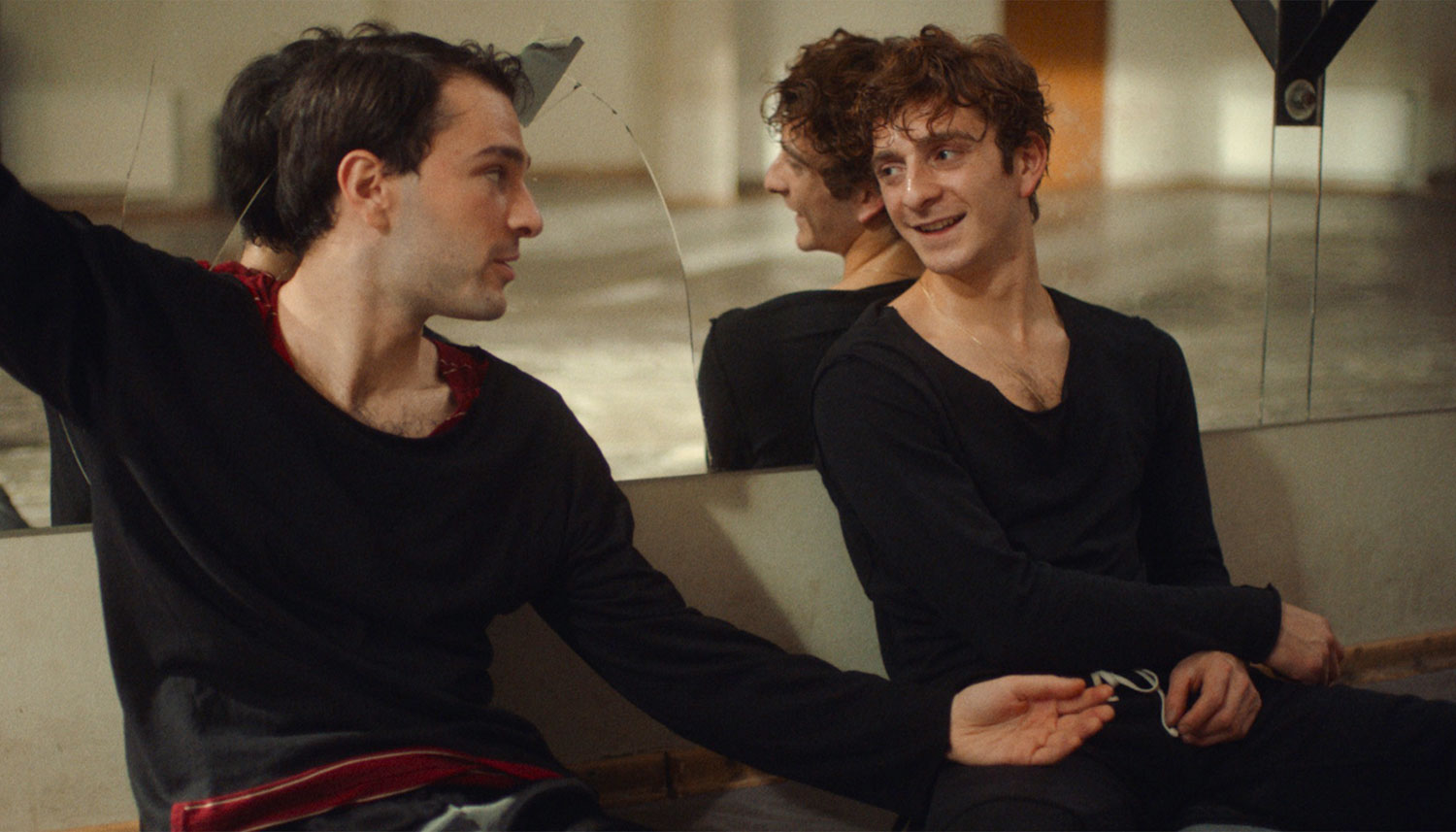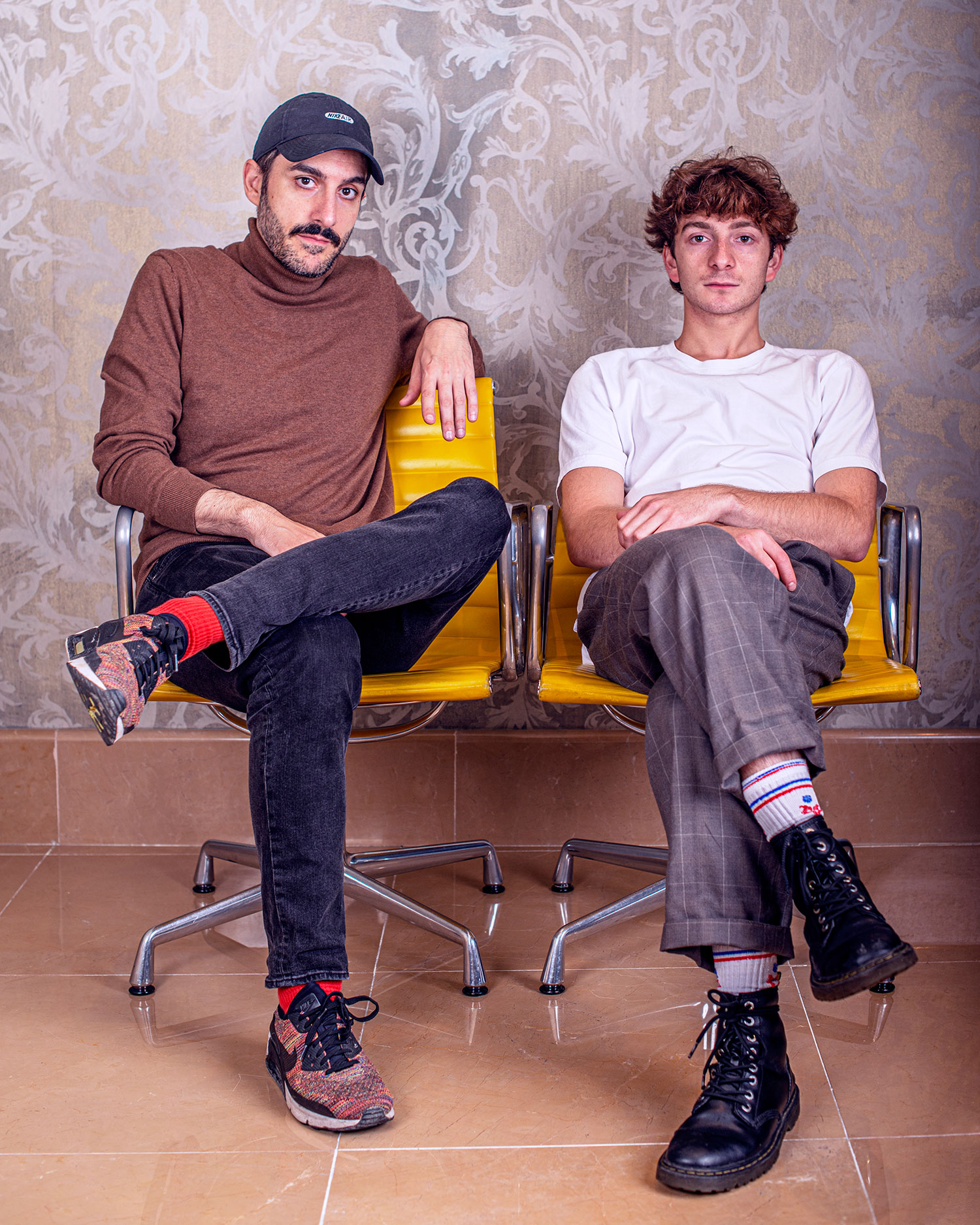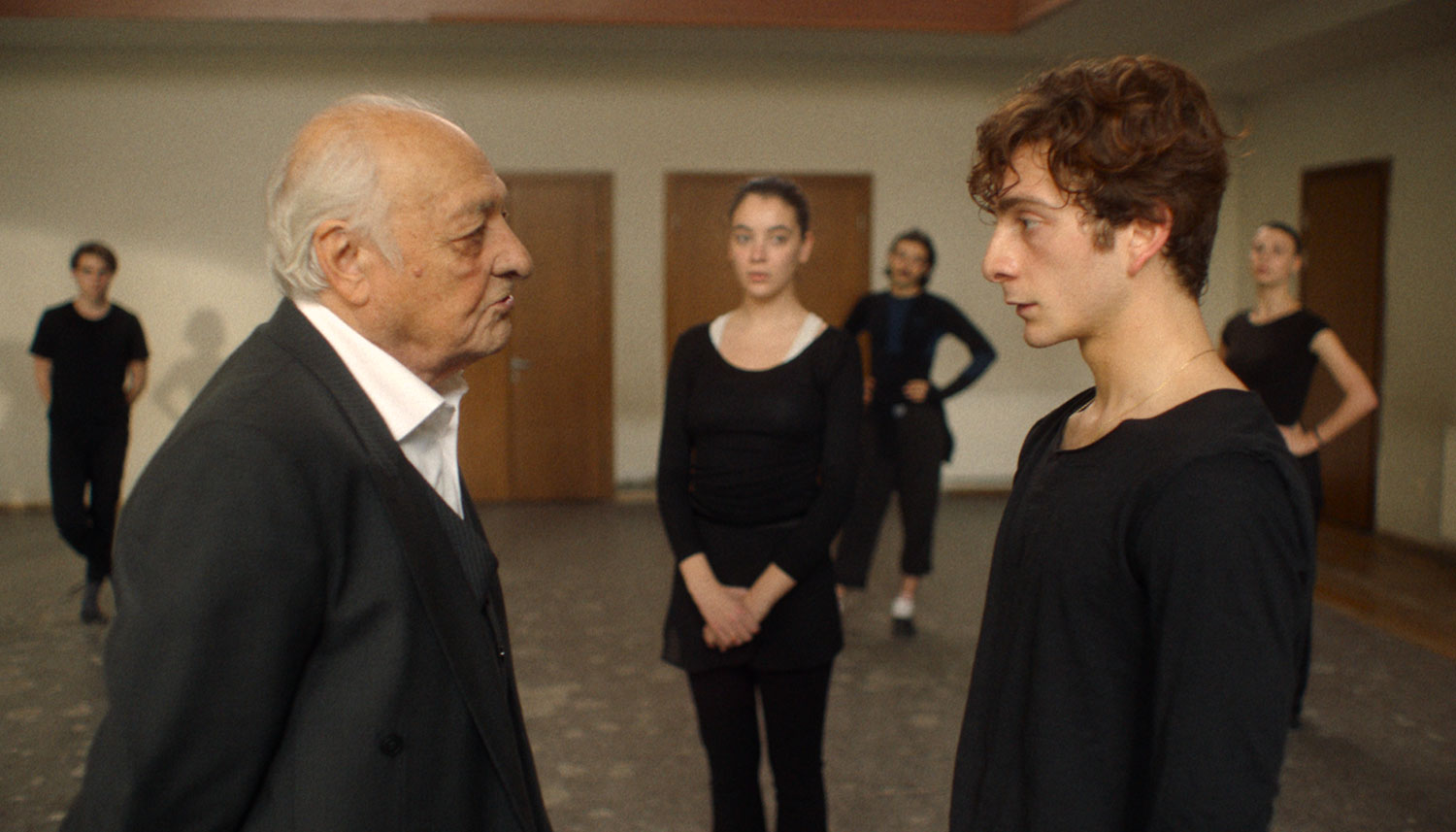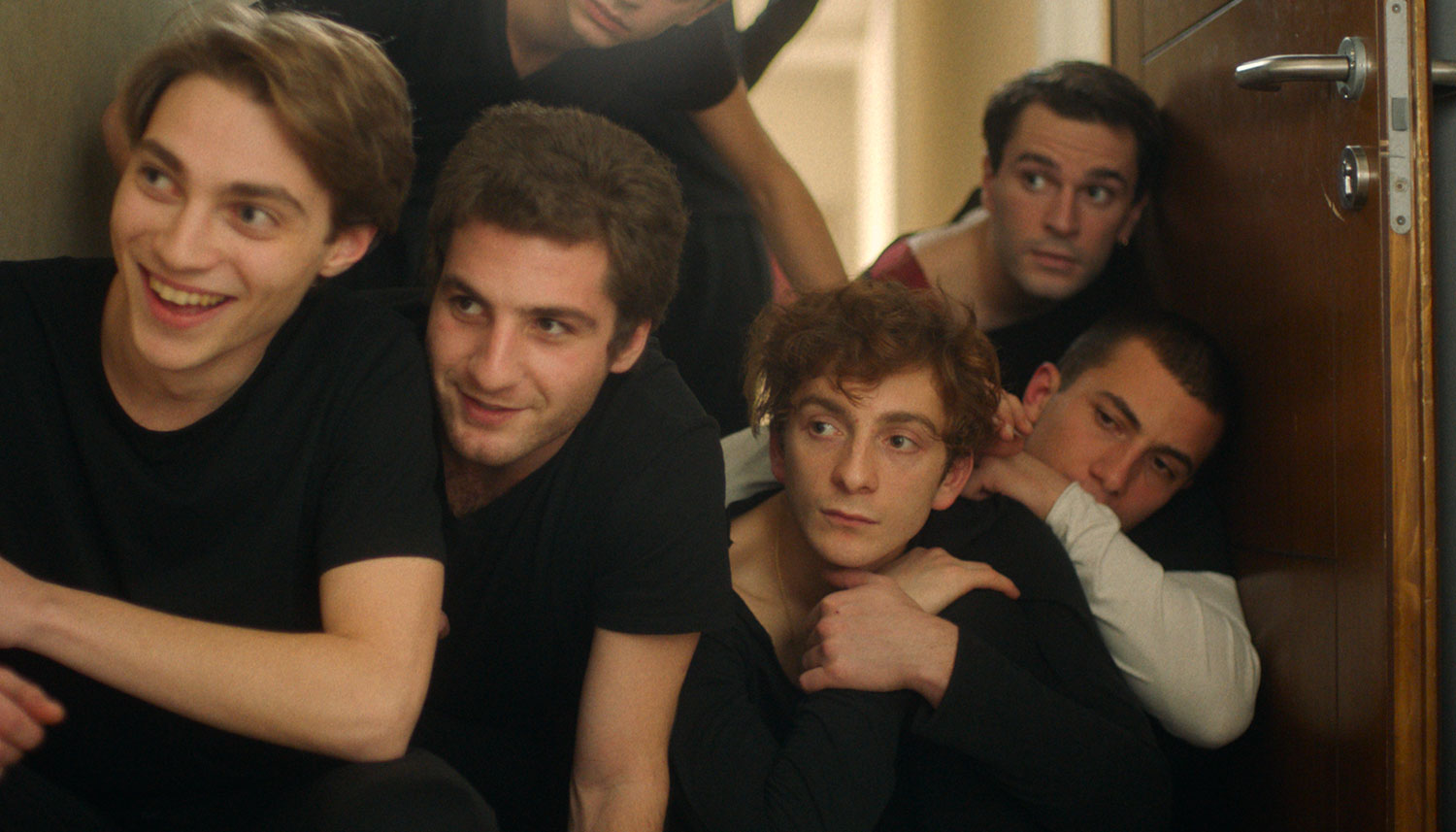Meet the guys behind ‘And Then We Danced’, Georgia’s first explicitly gay-themed film
Nominated for last year's Queer Palm prize at Cannes, 'And Then We Danced' is an important coming-of-age tale set in homophobic Georgia.
By Tim Heap
This article was first published in Attitude issue 320, April 2020
Words: Thomas Stichbury
If you’re making a gay movie and commit to including some sad-eyed shirt-sniffing in it, you better do it well because 2005 tear-jerker Brokeback Mountain still casts a huge plaid-patterned shadow over the LGBTQ cinematic landscape – we wish we knew how to quit you, Jack.
So, huge props go to director Levan Akin for rising to the challenge in his new (cowboy-free) film And Then We Danced, in which a stand-out moment sees one of the main characters take a mighty whiff of his lover’s clothes. “I’ve sniffed some t-shirts in my life,” he teases.
Attitude meets Levan and his leading man Levan Gelbakhiani (who helpfully goes by the nickname Gelly) to discuss the coming-of-age tale about the sexual awakening of young dancer Merab (Gelly), a member of the National Georgian Ensemble, whose life spins in an unexpected direction when he falls for his charming twinkle-toed rival, Irakli (Bachi Valishvili).
Dazzling at Cannes last year, where Levan was nominated for the Queer Palm prize, And Then We Danced raises the barre (sorry…) as the first explicitly gay-themed feature to come out of the former Soviet republic, Georgia. “There is one [other] movie that is super down-low and art-house,” Levan clarifies, adding with a flash of a mischievous grin: “[directed by a] Lynch wannabe.”

Located in the mountainous Caucasus, Georgia has an appropriately rocky track record when it comes to queer rights. Although homosexuality is legal there, the country ranks as the third most homophobic on the planet, according to the World Values Survey.
Levan, 40, who was born in Sweden to Georgian parents, felt compelled to make his latest project after seeing and being haunted by footage of the shocking violence at a Pride event in the capital, Tbilisi, in 2013.
Spurred on by incendiary comments from the head of the Georgian Orthodox Church, Patriarch Illia II, who compared being homosexual to a disease and drug addiction, furious protesters took to the streets to oppose the rally, which in a stroke of cruel irony was held on the International Day Against Homophobia.
In a sequence of events that wouldn’t look out of place in a horror flick, hordes of men descended on a bus carrying activists trying to flee the city centre to safety. All that was missing were flaming torches and pitchforks in a shameful spectacle so at odds with the glitter-doused pictures of Pride to which we’ve become accustomed.
“The images stuck with me,” Levan sighs. “Basically, it’s thousands of people attacking kids. They’re climbing on top of the bus, trying to tear it apart – and they would have torn [the activists] to shreds.”
Dissecting the clash of cultures in Georgia, the filmmaker identifies a tug of war between more liberal forces and those stymied by the taboo of tradition, in the imposing shape of the Church. “LGBTQ people are [legally] protected, but it’s not implemented. Georgia wants to see itself as one of the most progressive countries in the area and, in many ways, it is, and they want to move towards the EU. But there is also the Russian factor. Russia is there with heavy anti-LGBTQ propaganda, a political tool to scaremonger: if you go West, everybody will turn gay, get married and have sex parties.”
Traditional Georgian dance provided an inspired backdrop, then, for Levan to weave his story of burgeoning sexuality struggling to burst forth from the confines of oppressive heteronormativity.
“I felt it was a great place to show the patriarchal structure of Georgia, with the bodies and these hard, masculine lines,” he adds. “It was a good metaphor.”

After spending time exploring Georgia’s underground LGBTQ scene (“There is one gay bar”), Levan encountered the first of many obstacles over the course of the problem-plagued production: the casting of Merab.
It turns out that Gelly, a dancer with little acting experience, rejected the role five times. “It was a scary thing for me because of the topic. It’s a tiny country – three million people live there – and anyone can recognise [you]. It can be scary,” he explains.
The 22-year-old Georgian, who was discovered on Instagram, was eventually won over and attention turned to the search for his on-screen love interest.
As soon as Levan saw red – literally – during Gelly’s chemistry test with Bachi, he knew he’d found his man. “It was instantly obvious that this was the person because he [Gelly] blushed, his neck became red,” Levan divulges. “Blushing is the best sign that ‘OK, there’s energy here’.”
That hard-to-put-your-finger-on frisson is keenly felt in the pair’s carefully choreographed sex scenes.
Few shots stray below the waist as Levan opts for sensuality over “porn”, most notably in the boys’ initial clumsy fumble by a lake. “The first sex scene is just one take, there are no edits,” Levan recalls.
“It’s about being there in the moment: [Gelly] probably has butterflies in his stomach and a hard-on as he’s walking down there. I wanted it to feel tactile and I’ve had people tell me that it’s the most organic, natural sex scene they’ve seen. I love it when he smells his hand [afterwards].”
Apologies, belated spoiler alert: Merab sniffs more than a shirt.
Gelly jumps in to add that he wasn’t nervous about the more intimate parts of filming. “There were only five people on set,” he recalls. “For me and Bachi, it was fun.”

Plenty of folk in Georgia didn’t want the film to see the light of day, but no matter how many times Levan and his team were tripped up and wrong-footed, they pushed on.
For example, pre-booked locations suddenly became unavailable on the day of the shoot. “When we went to [places] that the municipality were in charge of, they wouldn’t say: ‘No, you cannot [film] because this is a gay movie’, but they would make up excuses such as: ‘We’re renovating’, which would piss me off.
“We also made the mistake of going to an ensemble in Georgia and asking for help. They were like, ‘No, you can’t do this, you’re crazy’, and started calling everybody, warning them about us. So, then we lost a huge location, the dance studio. Other locations we’d lose the night before,” Levan says.
At one point, he even came up with a fake synopsis to avoid further trouble. “It was about a French tourist who visits Georgia and falls in love with the culture!”
Levan, who also wrote the film’s screenplay, received little support from the Georgian Film Center and had a run-in with Nino Sukhishvili, from the Georgian National Ballet, who turned her back on them when they asked for advice. “She did an interview where she was going to tell her version, which backfired because she showed herself to be a huge homophobe, which was funny,” Levan smiles.
Another hiccup occurred while shooting with local sex workers, who Levan had befriended. “They were working that night, so customers would be coming up in their cars,” he exclaims. “[But] it gave the film so much life.”
Things took a far more sinister turn when death threats were issued from a right-wing group, culminating in the hiring of an on-set bodyguard. “Some people called our casting agent and told her that she was a disgrace to Georgia and that, if she doesn’t watch it, things would go badly,” Levan reveals.
The bulked-up security didn’t cause mass panic, however. “I was like, ‘who are these people following me around?’ We were sort of oblivious.
“We were kept in a bubble of working and hustling to make the movie,” the director adds.
Nodding in agreement, Gelly, whose turn won him the best actor award at the 25th Minsk International Film Festival, maintains: “We didn’t feel the stressful moments because we were so focused.”
The protection was factored into the budget so that cast members were not in Georgia in the wake of the film’s release. Levan stresses: “Being there for Gelly and Bachi is our number-one priority in life. This is more than a film for me. I have a personal relationship with them. We became like a family.”
The situation did intensify at the premiere in Georgia in November, with protesters outside the Amirani cinema, in Tbilisi. Riot police were on speed-dial as anti-LGBTQ locals threw rocks and firecrackers, and chanted “Shame” and “Long live Georgia” at film-goers.
At one point, an Orthodox priest recited prayers over a burning Pride flag. “I knew the film would spark a debate, but I was surprised by the level of aggressiveness,” Levan reflects. “They thought the film was promoting paedophilia and such nonsense.”

He continues: “It was a tough time. We didn’t want anybody to get injured because of our film, which was made out of love and respect. I just wanted the film to be seen by the majority of people in Georgia who actually support it and want to see it.”
Levan assures Attitude that the hate-fuelled protest hasn’t overshadowed the outpouring of love for the film. “It is a celebration of culture and tradition, and how it needs to be inclusive and not dictated by a few,” he insists, placing emphasis on that final word.
Georgia still has a long way to go when it comes to recognising and representing the rights of its LGBTQ community – indeed, plans to hold a Pride event last year were called off due to yet more threats.
Gelly, who has travelled around the world to promote And Then We Danced, adds that he has no desire to move away, in the hope that, one day, his home land will dance to a different beat.
“I really like my country, but there are lots of problems,” he says. “I want to stay there and fight for change.”
And Then We Danced is available to watch now on Peccadillo Player, iTunes, Amazon, Curzon Home and BFI Player.
As part of Peccadillo Picture’s Peccadillo Sofa Club series, Levan will be taking part in an online Q&A session tomorrow evening (16 April) at 8:45pm GMT. Watch it here.
For more information about the film and how to watch it, visit Peccadillo Pictures’ website.
